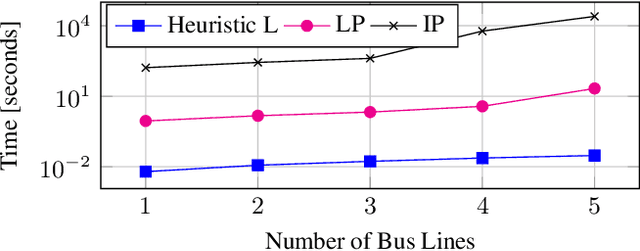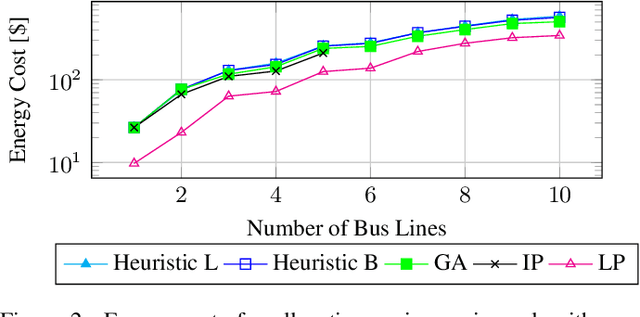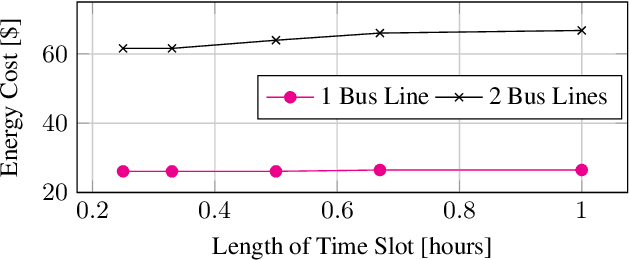Minimizing Energy Use of Mixed-Fleet Public Transit for Fixed-Route Service
Paper and Code
Apr 10, 2020


Public transit can have significantly lower environmental impact than personal vehicles; however, it still uses a substantial amount of energy, causing air pollution and greenhouse gas emission. While electric vehicles (EVs) can reduce energy use, most public transit agencies have to employ them in combination with conventional, internal-combustion engine vehicles due to the high upfront costs of EVs. To make the best use of such a mixed fleet of vehicles, transit agencies need to optimize route assignments and charging schedules, which presents a challenging problem for large public transit networks. We introduce a novel problem formulation to minimize fuel and electricity use by assigning vehicles to transit trips and scheduling them for charging while serving an existing fixed-route transit schedule. We present an integer program for optimal discrete-time scheduling, and we propose polynomial-time heuristic algorithms and a genetic algorithm for finding solutions for larger networks. We evaluate our algorithms on the transit service of a mid-size U.S. city using operational data collected from public transit vehicles. Our results show that the proposed algorithms are scalable and achieve near-minimum energy use.
 Add to Chrome
Add to Chrome Add to Firefox
Add to Firefox Add to Edge
Add to Edge